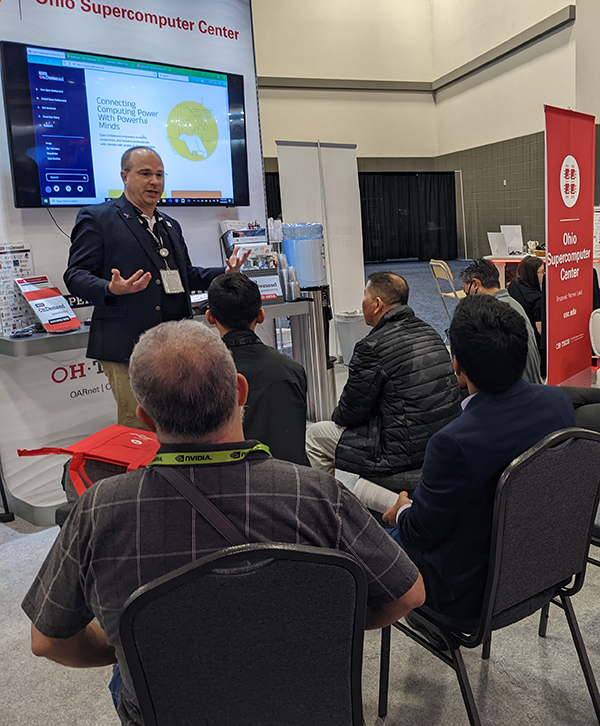The National Science Foundation (NSF) has awarded the Ohio Supercomputer Center (OSC) $1.5 million in funding to create a new governance organization for Open OnDemand, a web portal that provides easy access to high performance computing (HPC) resources, to ensure the long-term sustainability of the project.
Launched in 2017 to help academics more readily adopt and use HPC resources for research and teaching, OSC’s Open OnDemand is now deployed at hundreds of sites across the globe, including at public and private academic institutions, government agencies, non-profit organizations and private industries.

With its simple web browser interface, Open OnDemand has gained popularity as a tool for accessing the supercomputing resources of HPC centers from any device at any time. Compared to traditional terminal-based login methods, Open OnDemand has reduced the time required to submit and process HPC jobs, speeding up the scientific process, according to multiple analyses by different organizations.
“OSC developed Open OnDemand in response to national concerns that HPC resources have been too difficult for professionals in academia and industry to access,” said Alan Chalker, OSC director of strategic programs and principal investigator on the NSF grant. “Many people are accustomed to using smart phones and other personal electronic devices to easily use the web and perform everyday tasks. Open OnDemand takes advantage of that technology to break down barriers to HPC and encourage more people to learn how to use these resources to advance research and innovation.”
OSC will use the new NSF award to expand the governance structure of Open OnDemand to support its long-term viability through the addition of program management, security and QA expertise. This enhanced structure will strengthen the ability of the community of Open OnDemand developers, contributors and clients to grow and sustain the portal.
“OSC’s goal is to set up the long-term sustainability and success of Open OnDemand and the community invested in the portal,” Chalker said.
Julie Ma, a program director at the Massachusetts Green High Performance Computing Center (MGHPCC) and co-principal investigator on the NSF grant, will lead initiatives to engage the Open OnDemand community. Ma will oversee the Open OnDemand advisory board and interact with the community to gain a deeper understanding of how and where Open OnDemand is being deployed, as well as to inform development efforts that will further enhance user experience and productivity.
“Open OnDemand is deployed at hundreds of sites worldwide and supports the advancement of research and education in a vast array of scenarios for thousands of researchers, educators and students,” Ma said. “By tapping into the collective wisdom of the community to inform our decision-making and development, our hope is that we will further accelerate the adoption of Open OnDemand, which in turn will drive scientific innovation and discovery.”
The new project is designed to support the broader goals of Open OnDemand, which includes the increased adoption of research computing resources across a variety of science domains and other disciplines, improved collaboration between the public and private computing sectors, and early engagement of students who will be the next generation of HPC users.
For more information about the portal, visit the Open OnDemand website.
About OSC: The Ohio Supercomputer Center (OSC) addresses the rising computational demands of academic and industrial research communities by providing a robust shared infrastructure and proven expertise in advanced modeling, simulation and analysis. OSC empowers scientists with the services essential to making extraordinary discoveries and innovations, partners with businesses and industry to leverage computational science as a competitive force in the global knowledge economy and leads efforts to equip the workforce with the key technology skills required for 21st century jobs.